I. Introduction
Brief Overview of Damascus Knives.
Damascus knife care ensures your blades remain sharp and effective. Damascus knives careb are amazing not only in appearance but also strength and sharpness. Memorable for creating knives dated back in the days, these knives have a wavy design which adds an element of creativity and craft to the knife. On the other hand, to retain the knife’s beauty and working efficiency, proper abuse and cleaning are important.
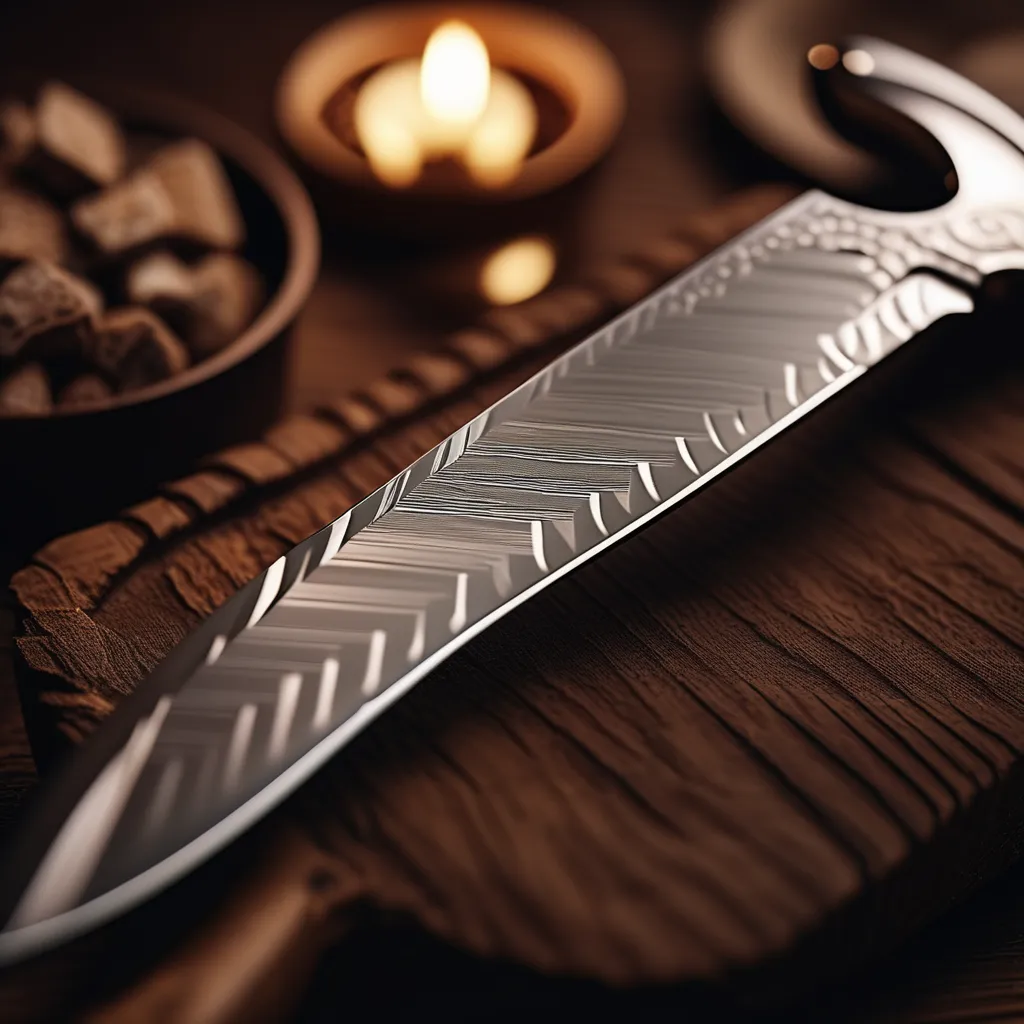
Importance of Proper Care and Maintenance
Taking care of a Damascus knife is not solely the knifes attractive aspects. Damascus knife care is essential for maintaining the blade’s integrity and sharpness. It is also important for the safety and proper functioning of the knife for an extended period. Even a high-quality Damascus steel can become dull and rust or wear out when it is poorly maintained. Proper handling of the knife will ensure that the knife retains its sharpness, toughness, and rust free status for some years.
Purpose of the Blog Post
The purpose of this blog post is to provide you with all the dos and don’ts while handling your Damascus knife. It does not matter if you work as a chef in a restaurant or are a knife collector and lover, learning how to care about your Damascus knife will help you enjoy its appearance and working properties for years. Damascus knife care should include periodic professional sharpening for optimal results.
ІІ. The History and Evolution of Damascus Steel:
The Damascus Steel originated in the near east from where it got its name from a city where machetes were forged in the medieval period. It is known that weapons made of such steel would hold an edge as well as be very hard and shock resistant. Manufacturing of the steel was supposed to have been a secret trade passed verbally from the ancient blademakers to their younger members. Damascus knife care enhances your culinary experience by keeping your tools in top shape.
The Distinct Features and Attributes of Damascus Knifes:
It is the patterns on the steel seen on the swords known as the Damascus knives that makes the knives attractive and striking appealing to the users. Damascus knife care allows you to enjoy the knife’s unique patterns while ensuring functionality. This doesn’t only bring about an enhancement of the knives appearance but also their strength and flexibility too. The edges are comparatively sharper and long-lasting, which are not possible to achieve with any other steel; hence they are popular with cooks and enthusiasts.
Owning a Damascus Knife Lets You Enjoy Several Benefits
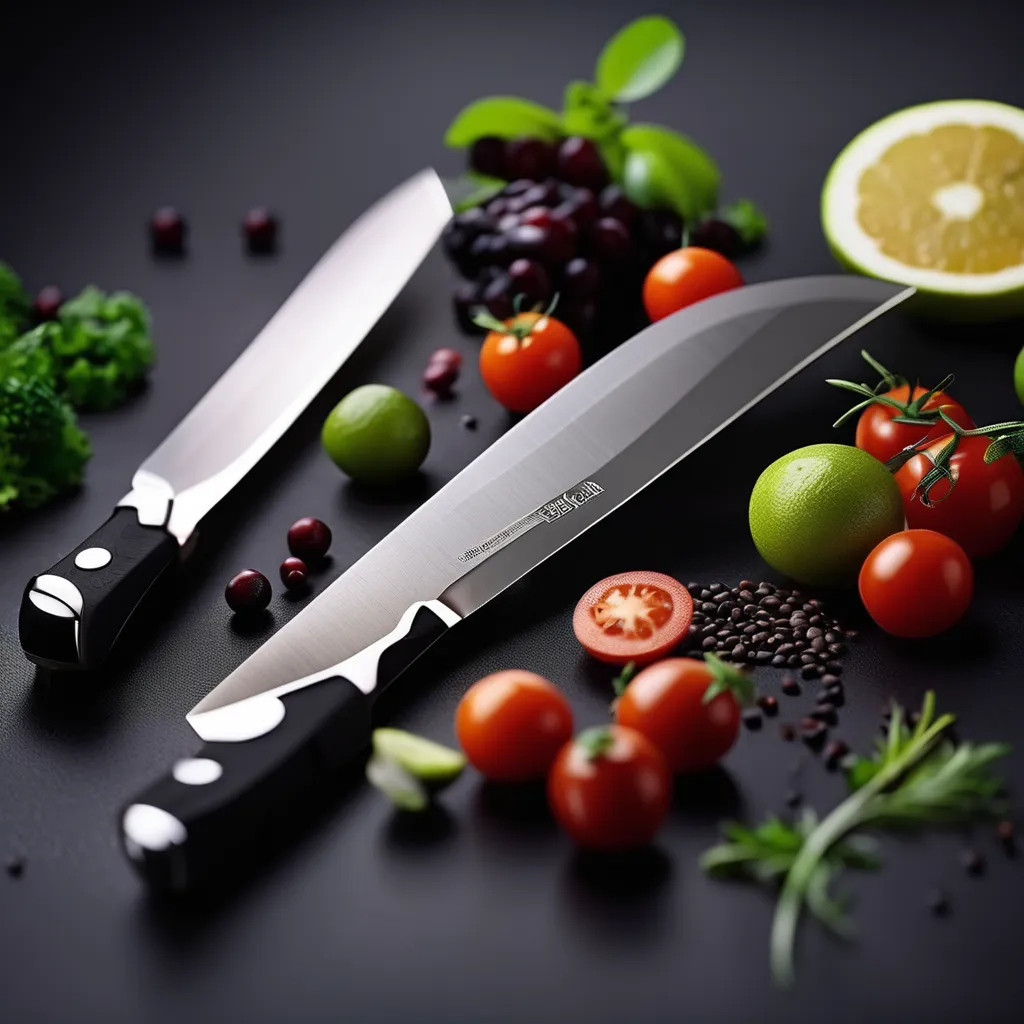
When it comes to a Damascus kitchen knife, you are investing in quality and beauty. These knives are not only a useful item but also a decorative item. In the kitchen, they are most useful in slicing, dicing, chopping and mincing because of their hardness and retention of sharpness. A Damascus knife will ensure that during one’s lifetime, practical and safeguarding purposes are delivered simply provided proper care is maintained. Damascus knife care is crucial for enhancing the knife’s lifespan and performance in the kitchen.
III. Caring for Your Damascus Knife
Generating Trigger Cleaning and Drying
Misdemeanor, inefficiency or unproductiveness can also come from dulling of the blade. While cleaning, it is of utmost importance to do so right after use, in order for the Damascus knife to retain its sharpness and its shine. Lightly wash the knife blade in warm water with some liquid soap.
Damascus knife care includes drying the blade immediately after washing to avoid water spots. After that apply a soft piece cloth in ensuring the blade is dried properly. It is also advisable not to keep the knife in water for a prolonged time to avoid getting it rusty or leaving it wet at all even with a good Damascus steel.
Proper Packing to Avoid Knife’s Accident
Damascus knife care means storing the knife in a protective sheath or block to prevent damage. Damage occurs even when handling a Damascus knife, for instance, when it’s not being used. A protective sheath, knife block, or magnetic strip are some viable options to store a knife. Make sure that nails or such have not been left in which the knife can scratch itself on or some benches auxiliary utensils with which the blade can collide and grow dull. Besides, do not use any wet environment to keep the knife.
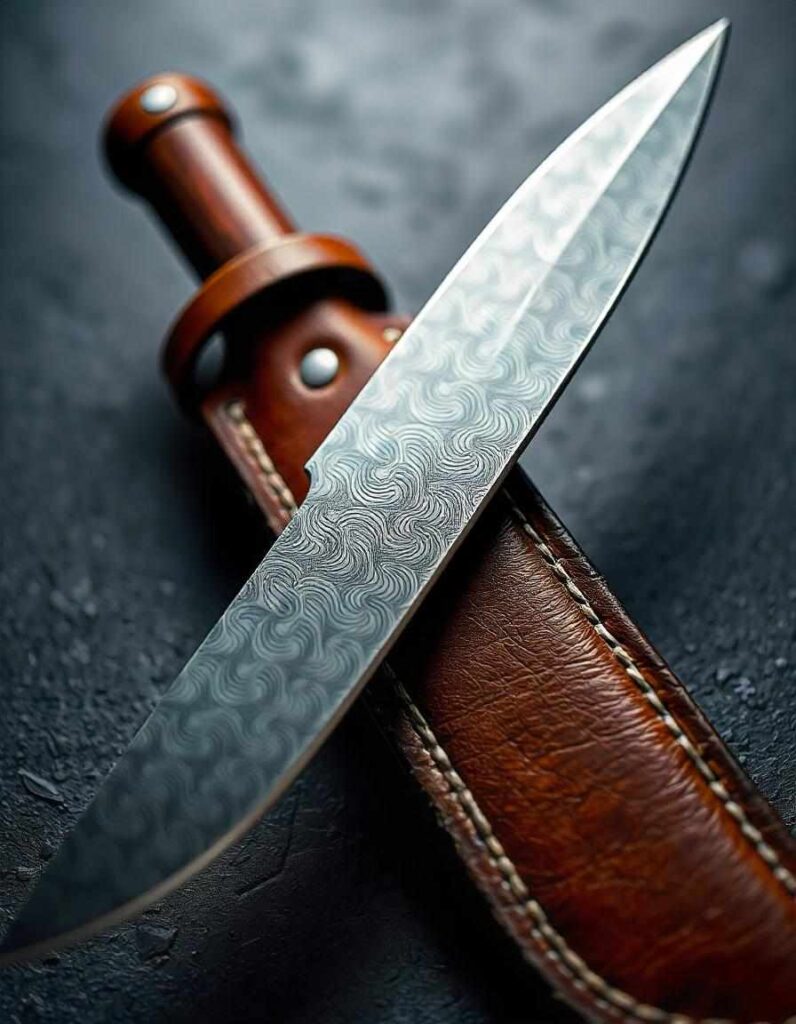
Maintaining impermeability
It is of the utmost importance to maintain that sharp edge on your Damascus knife. You can go for a honing rod instead to push the blade back into shape when it is not in use and sharpen the knife with a whetstone or professional sharpener when it is necessary. It is a well-known fact that cutting with a sharp knife in the kitchen optimizes the performance of any meal while decreasing the chances of any occurring accident.
IV. Tips for Maintenance
Utilizing dispersion honing rods for the purposes of suppression
Damascus knife care emphasizes regular honing to maintain the edge’s sharpness.Honing rods for beautiful edges or blades of shapes by ideal trimmers para. Maintenance of a Dakota knife would also require a honing rod. Instead of sharpening which is the process of taking away some of the metal from the blade to give it a new edge, honing is simply putting the already existing edge back in line. Knives can be used out of the box, but you will not expect them to stay sharp for a long without some form of sharpening.
Avoiding Kinds of Cleaner And Using Dishwasher
Fierce cleaners and using dishwasher to clean a Damascus steel knife should never be an option. Always hand-wash with a knife and a soft soap and warm water. Damascus knife care suggests using a damp cloth to wipe the blade after each use. Dishwashers subject the knife to temperature extremes as well as harsh detergents that will remove the protective layer and can dull the blade. Refrain from using any kinds of caustic chemicals or high-grade scouring pads to clean the blade so as to prevent it from scratching.
Oiling the Blades To Prevent Corrosion
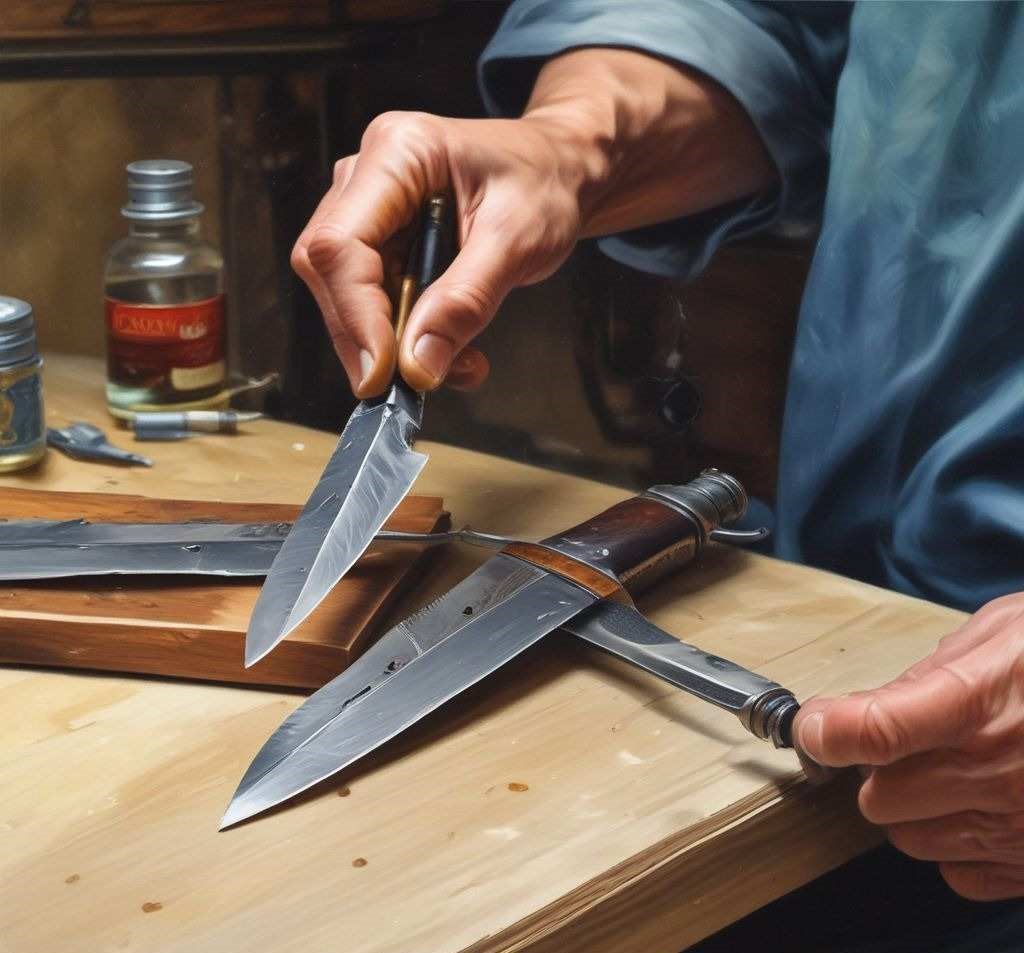
Even so, it is not uncommon for such blades to receive oil to prevent rust. One can use a food-safe mineral oil and give a light coat after the blade has been cleaned and dried. This moisture is a breeding environment for rust. Oiling the blade will enhance its looks and lengthen its life if you are living in conditions that are moist. Damascus knife care helps maintain the aesthetic beauty of the knife’s intricate design.
V. Common Issues and Solutions
Removal of the Rust Spots
When you find rust spots on your Damascus steel kitchen knife, you shouldn’t worry. It is possible to get rid of rust using a mixture of soda and water, or a certain rust eraser. Take a soft cloth or sponge, and whenever possible rub the rusty area gently. Wash and dry the blade thoroughly… Right after the treatment, spray on a light coat of oil to avoid more rust. Damascus knife care encourages avoiding harsh abrasives that can scratch the blade’s surface.
Repairing Minor Chips or Dings
A minor chip or ding can be fixed at home through the use of a whetstone of fine grit. A blade may be drawn steadily across the stone at the required angulation and this will help smoothen out the chip or ding. For a temporarily hit edge knife in high damage, sharpen professionally to get the knife edge back. Damascus knife care encourages avoiding harsh abrasives that can scratch the blade’s surface.
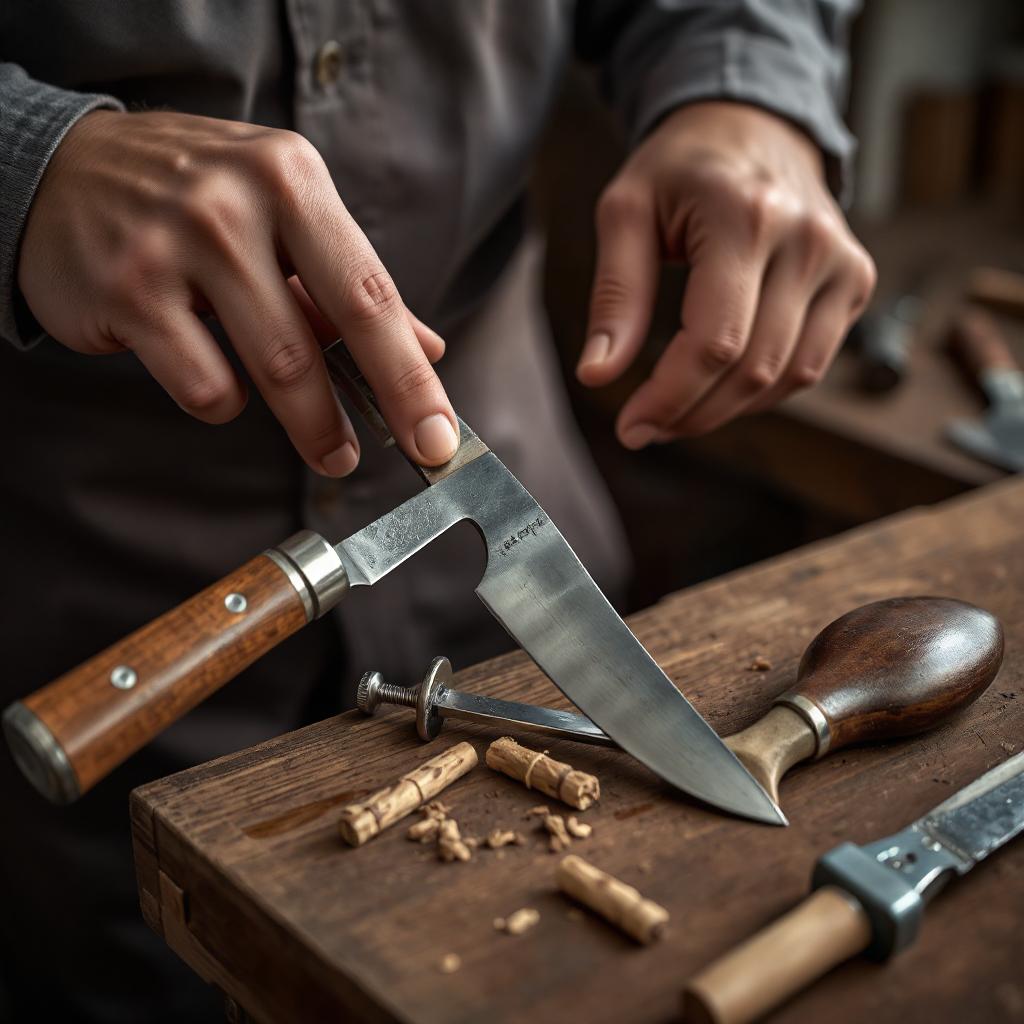
Restoring the Blade’s Finish
There comes a time within the lifespan of using your Damascus knife when the finish fades or loses its shine. Fine polishing compounds suitable for metals can be used when restoring new finish to the dull knife blade. Western style has polish applied using soft cloth against blade patterns to make them more attractive. If done properly, polishing and care of the blade will have your Damascus knife as beautiful as it was on the day it was purchased. Damascus knife care should include periodic professional sharpening for optimal results.
VI. Conclusion
Importance of Caring for Your Damascus Knife
Damascus knives need to be cleaned up and stored well so that they retain their attractiveness and sharp edge for a long period. Damascus knife care involves keeping the handle clean and dry for a secure grip. If you observe the right procedures of cleaning your knife after using it, storing it and maintaining it, your knife will be an acquiescence and a valued asset in your kitchen.

Review of Major Meant do Maintenance Tips
Damascus knife care focuses on using the right cutting board to prevent blade dulling. Always clean, dry, and keep your valuable knife in its place; sharpen it when it becomes too dull. Do not use any cleaning agencies and, as a rule, wash the knife by hands only. Do not forget to lubricate the blade to avoid the formation of corrosion and try to tackle problems such as filling and tipping in as soon as you notice them.
Encouragement to Take Pride in Your Knife and the Craft
A Damascus knife is not only a kitchen working instrument but also an object of art that has to be taken care of with great care. Damascus knife care requires being mindful of the knife’s balance while cutting. If you spend some time on proper looking after the knife, you will not just maintain its usefulness, but also respect the beauty of the masterpiece that the knife is. Learn to take care of a Damascus knife, and it will repay you well for many years.
FAQs
How do I properly clean my Damascus knife?
To clean your Damascus knife, hand wash it with mild soap and warm water immediately after use. Avoid soaking or using dishwashers to prevent damage. Damascus knife care focuses on using the right cutting board to prevent blade dulling.
How often should I sharpen my Damascus knife?
Damascus knife care emphasizes regular honing to maintain the edge’s sharpness. Regular honing helps maintain the edge, but sharpening should be done when you notice the blade losing its sharpness, typically every 3-6 months.
What’s the best way to store a Damascus knife?
Store your Damascus knife in a protective sheath, knife block, or magnetic strip to keep the blade safe and prevent damage to its unique patterns. Damascus knife care should involve applying a thin layer of food-safe oil to protect against moisture.
How do I prevent rust on my Damascus knife?
Always dry your Damascus knife thoroughly after cleaning, and apply a light coat of food-safe mineral oil to prevent moisture from causing rust. Damascus knife care advocates for avoiding prolonged exposure to acidic foods.
Can I use my Damascus knife on hard surfaces like glass or stone?
No, using your Damascus knife on hard surfaces can dull the blade quickly. Always use a wooden or plastic cutting board to maintain its sharpness. Damascus knife care encourages avoiding harsh abrasives that can scratch the blade’s surface.
Summary
To maintain the quality and longevity of Damascus knives, regular care is essential. Damascus knife care involves regular cleaning to prevent rust and corrosion. This includes hand washing, thorough drying to prevent rust, and storing the knife in a protective sheath or knife block. Routine sharpening and honing ensure the blade remains sharp, while oiling the knife occasionally helps preserve its unique patterns and prevents corrosion. Proper care will keep your Damascus knife in peak condition for years
